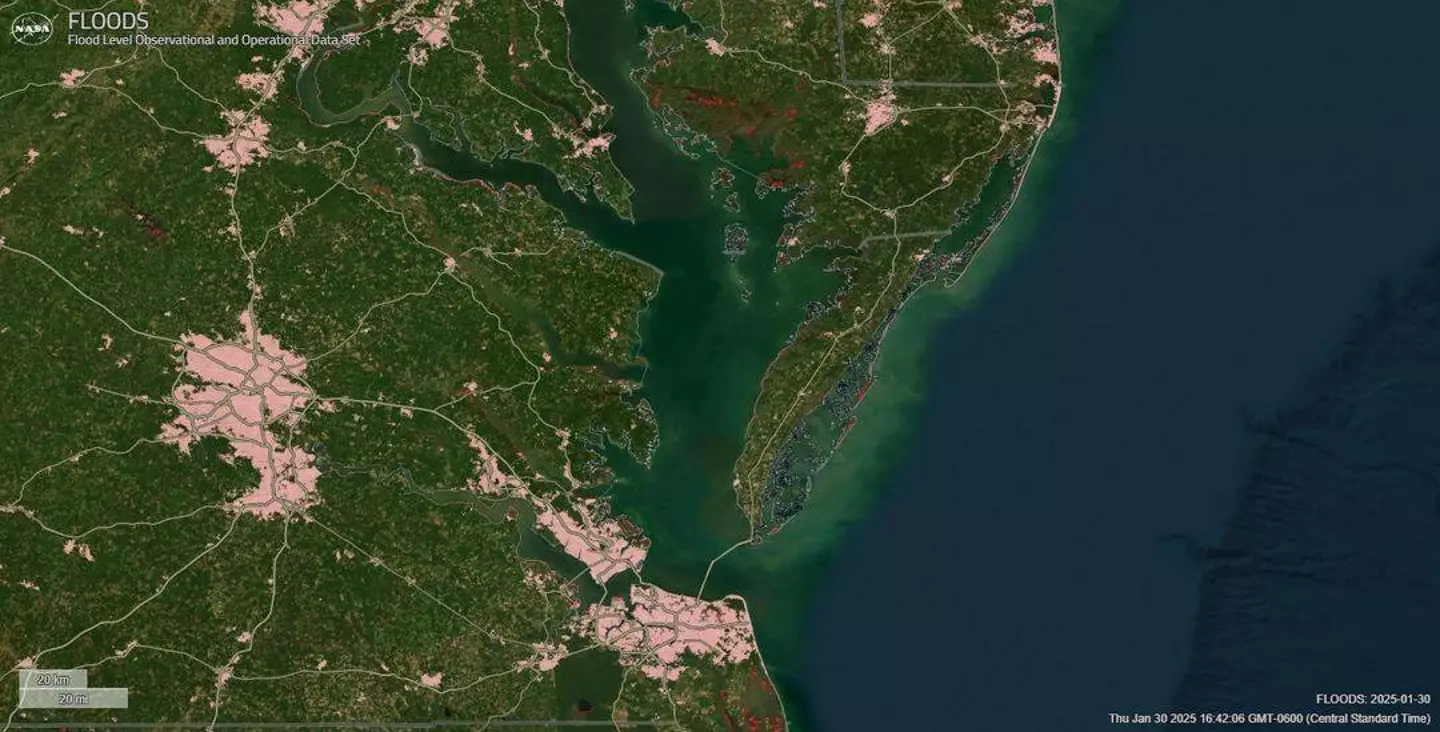
If you fancy yourself as the next Stephen Hawking, NASA could have the competition for you. The world is evolving faster than we can imagine, and we don't just mean in terms of technology.
There are continued concerns about what climate change is doing to Earth, and whether there will even be an Earth for future generations to inherit. NASA is aware of the fragile ecosystem of our planet, but with technological advancements in computing, it's hoping to apply this to real-world issues. After all, when the Sahara Desert floods for the first time in 50 years, it might be time to take note.
NASA has posted information on its Beyond the Algorithm Challenge, which is described as a place where 'innovative computing meets Earth science' that encourages bright minds to put themselves forward. Using 'breakthrough computing methods', entrants are asked to help "provide solutions or potential solutions to improve flood water analysis by using one or more unconventional computing method."
The official site explains: "The NASA Earth Science Technology Office (ESTO) seeks solutions to complex Earth Science problems using transformative or unconventional computing technologies such as quantum computing, quantum machine learning, neuromorphic computing, or in-memory computing."
The first phase closes on July 25, with a five-page white paper and a two-to-three-minute video required. Up to 10 finalists will be selected on August 15, with the second phase asking for code solutions to be uploaded to a code repository like GitHub while also presenting their ideas to a live panel of judges. Three winners will be chosen in September, with each being awarded $100,000. The third phase involves the three winners attending a 'Funding 101' webinar in October, followed by a follow-up interview a year later.
Advert

Submissions will be marked on creativity, technical feasibility, impact, business model evaluation, and presentation. Individuals, organizations, and teams are all encouraged to apply, although there are some restrictions. Individuals have to be U.S. citizens or permanent residents aged 18 or over.
Organizations must be incorporated in and maintain a primary place of business in the United States, while teams have to be comprised of eligible individuals or organizations, led by a U.S. Citizen or permanent resident who is 18 years of age or older.
NASA reminds us: "Flood hazards affect personal safety and land use initiatives, directly affecting individual livelihoods, community property, and infrastructure development and resilience."
It hopes to apply these methods in an Earth observation context, driven by NASA's leadership and hoping to push computing technology frontiers.
If you think you can solve the world's flooding problems, the best thing is that the Beyond the Algorithm Challenge is completely free to enter.